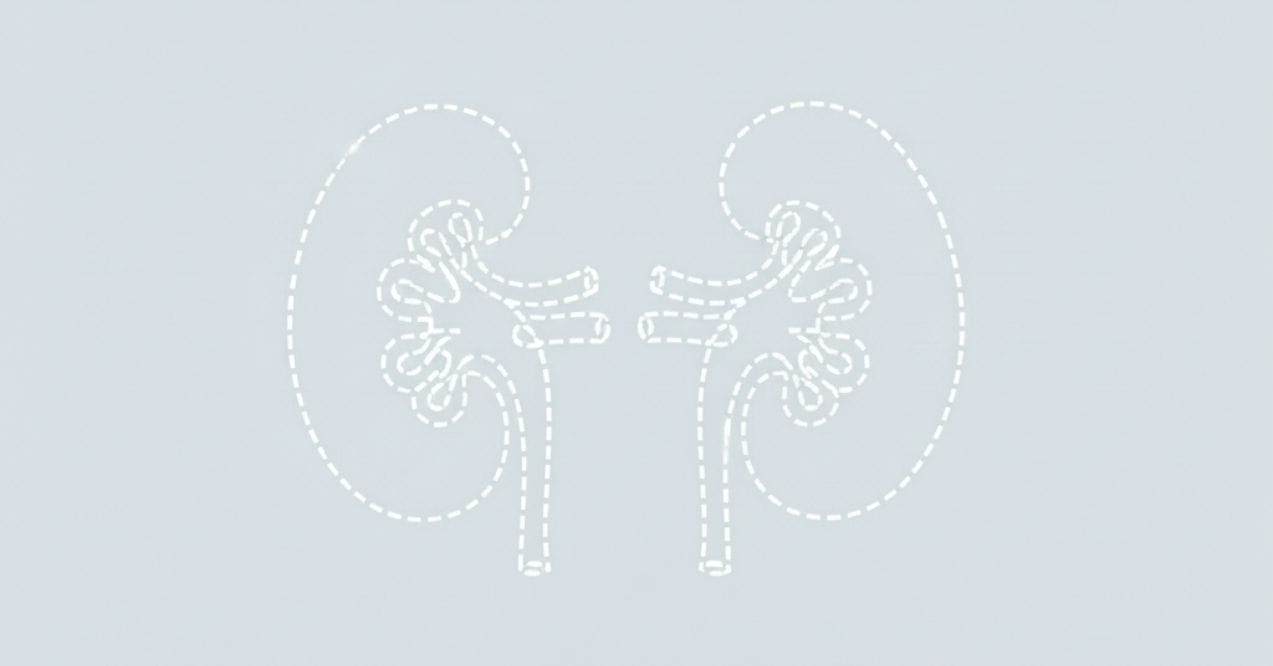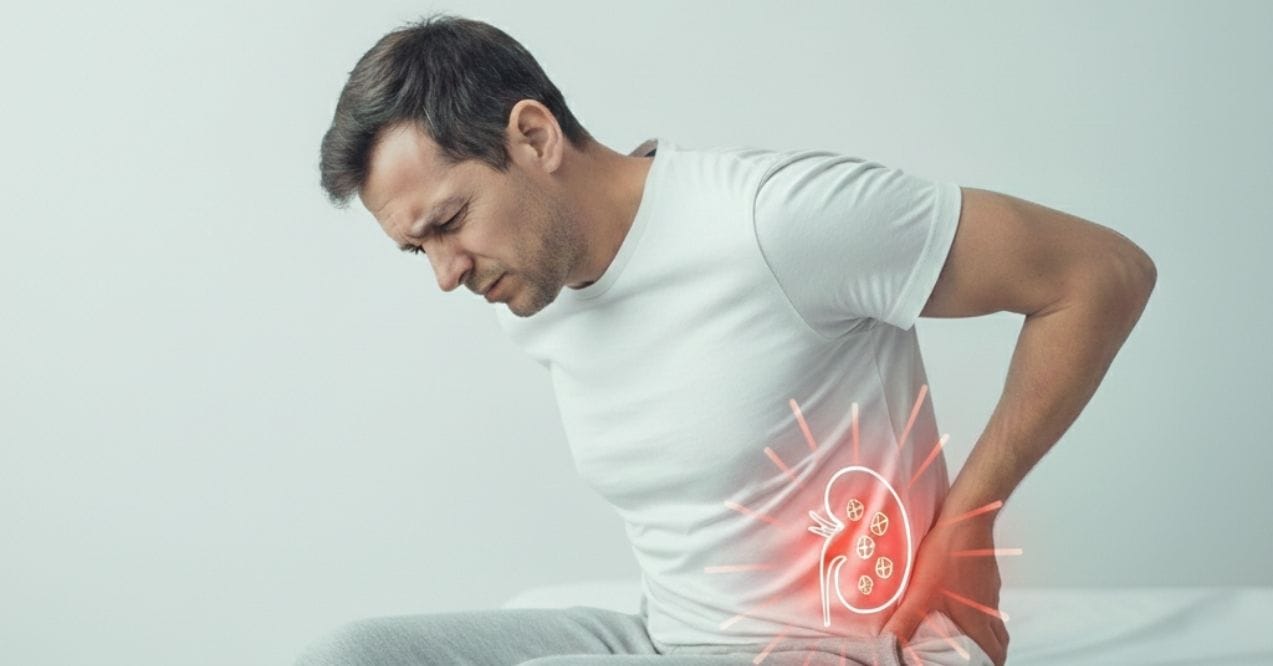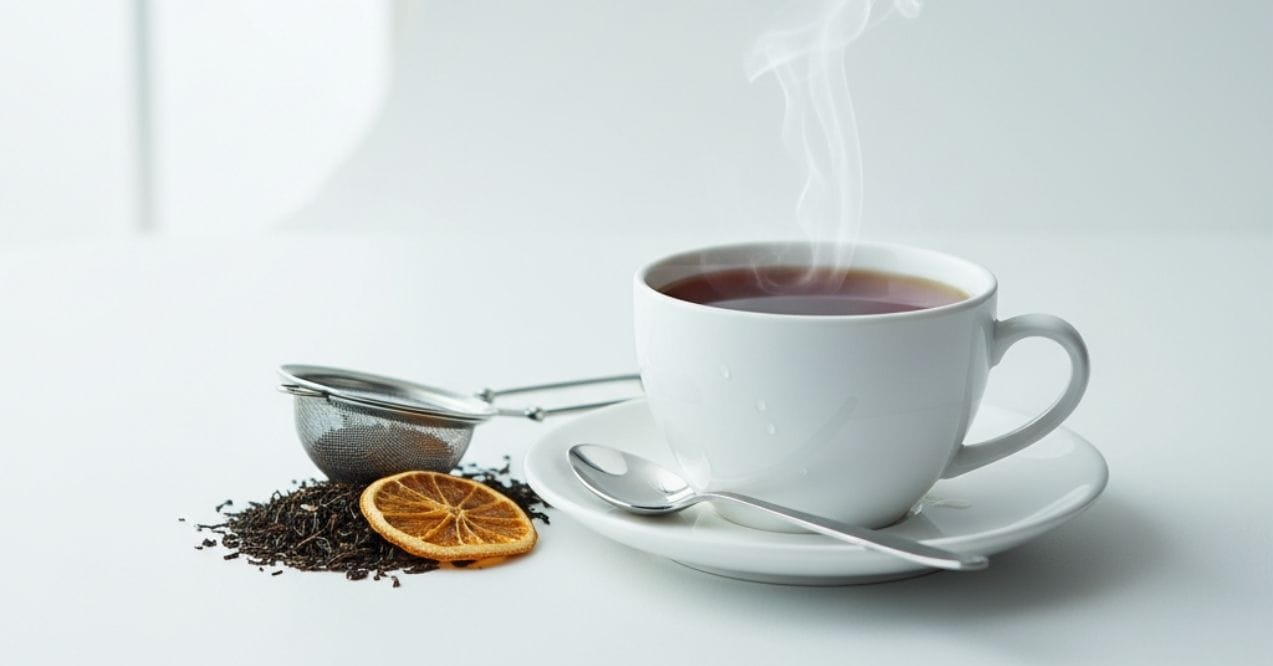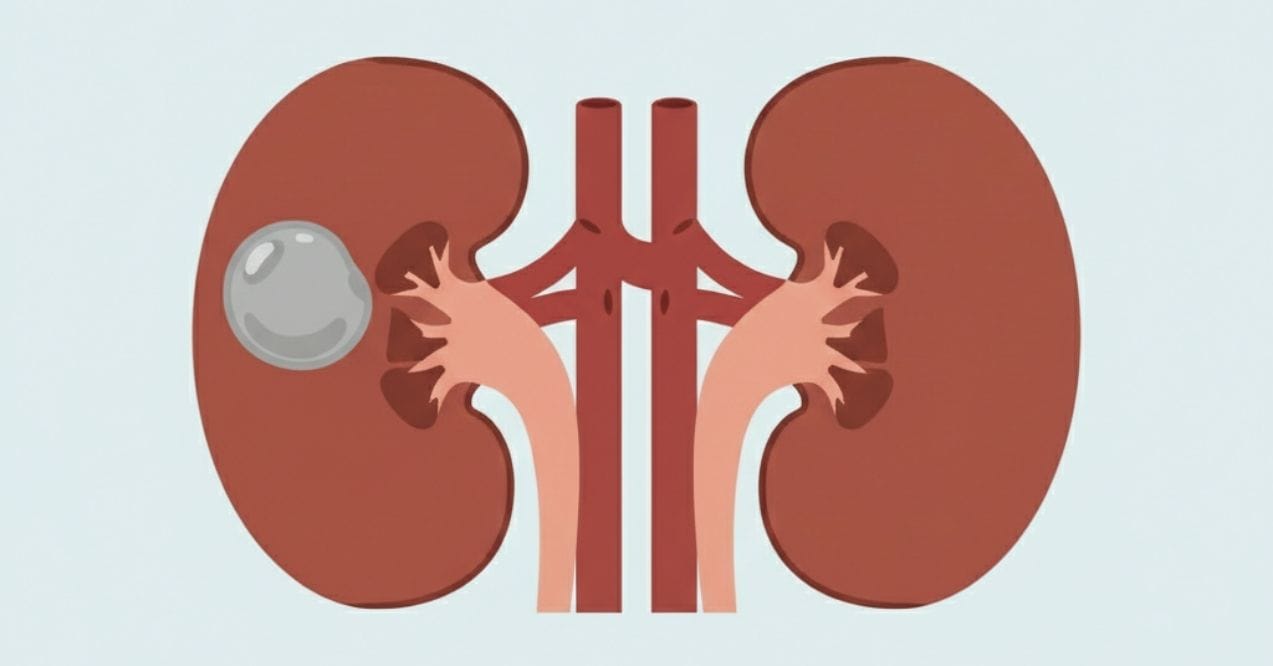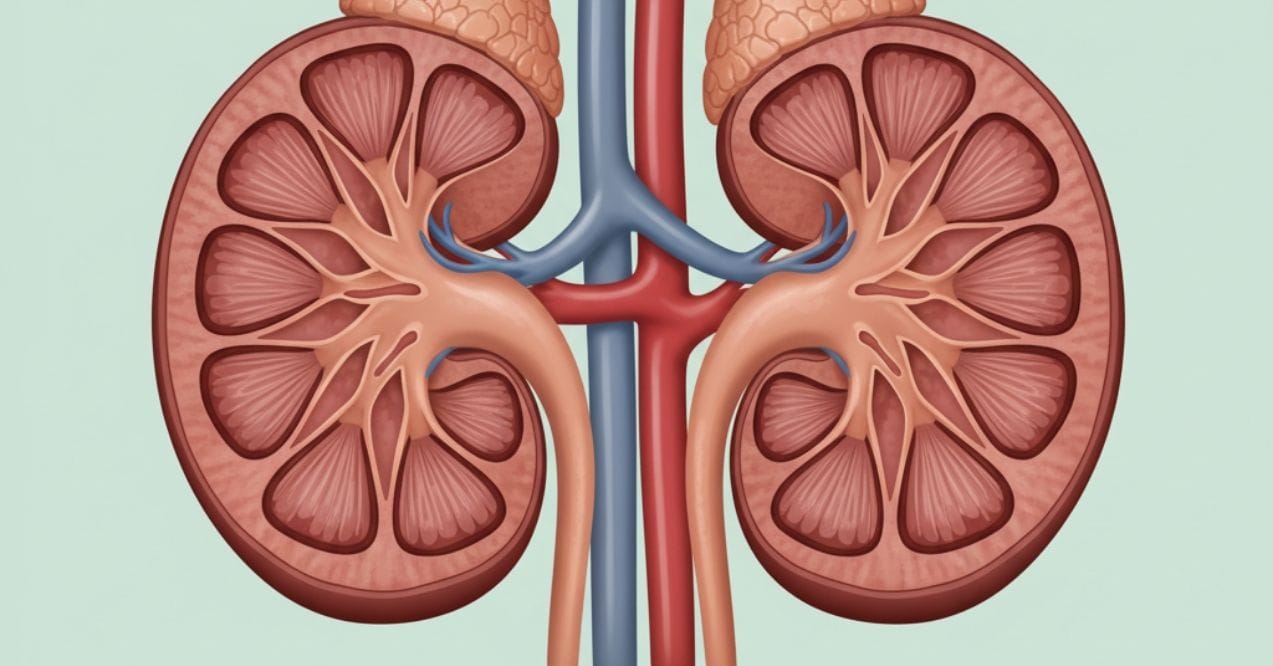How Can Kidney Stones Cause Gas and Bloating in the Stomach?
Can kidney stones cause gas and bloating? Explore symptoms and solutions to boost kidney health.


While kidney stones are widely recognized for causing lower back pain, kidney stones can also cause gas and bloating. This connection is often overlooked, yet understanding it is crucial for managing your overall health.
This article explores whether kidney stones can affect your digestive system, leading to gas and bloating. By examining this link, we aim to provide insights that help you make informed decisions about your health.
What Are Kidney Stones?
Kidney stones are small, hard deposits of minerals and salts that form inside the kidneys. They can range in size from as small as a grain of sand to as large as a marble. These stones form when substances in the urine become concentrated, leading to the crystallization and growth of stone-like materials.
Kidney stones can form due to various causes such as dehydration, a diet high in minerals, and a family history of kidney stones. For those curious about diet’s role, our article on “Do Energy Drinks Cause Kidney Stones?” offers more insights.
Symptoms of kidney stones include severe lower back or side pain and discomfort during urination. Early detection of these symptoms is crucial for effective management. Understanding kidney stones is essential for maintaining your health.
Can Kidney Stones Cause Gas and Bloating?
Many associate kidney stones with severe pain in the back or side. However, it’s less known that these stones can also affect the digestive system, causing gas and bloating. Our bodies are a network of interconnected organs and systems. When kidney stones disrupt this network, particularly affecting urine flow, it can lead to fluid backup in the kidneys and increased pressure. This pressure can extend to the digestive system, causing discomfort.
As kidney stones move from the kidneys to the ureter, they irritate and inflame this pathway, which can affect nearby organs such as the stomach and intestines. This irritation can disrupt intestinal rhythm, leading to gas and bloating. Moreover, the body’s reaction to the stones can intensify this digestive upset. Pro-inflammatory chemicals and spasms can further complicate the situation, akin to a finely tuned orchestra thrown into disarray by a few off-key notes, resulting in discomfort instead of harmony.
It’s important to note that the severity of these symptoms can vary. Factors such as the size and location of the stones, as well as an individual’s pain tolerance, influence how significantly one experiences gas and bloating. Each person’s experience with kidney stones and their symptoms is unique.
How to Reduce Kidney Stones Risks and Alleviate Gas and Bloating?
Experiencing gas and bloating alongside kidney stones? There are several ways to address the root cause and its symptoms, from medical interventions to lifestyle adjustments and alternative therapies. Here’s a guide to finding relief:
1. Hydration Is Key
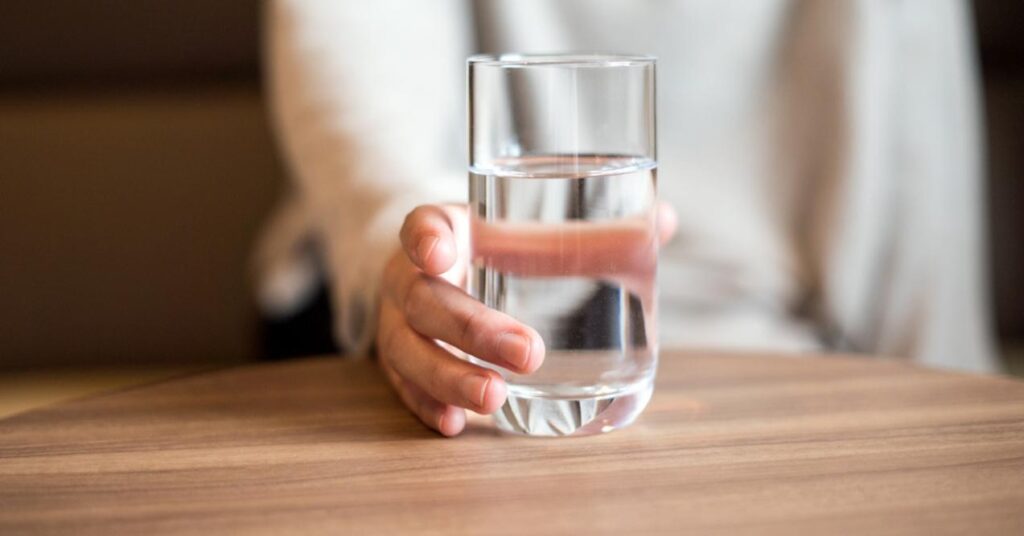
Stay hydrated by drinking at least eight glasses of water daily, which helps dilute substances in your urine that could form stones. Adding citrus fruits like lemons or oranges provides citrate, a natural inhibitor of stone formation.
2. Medical Interventions
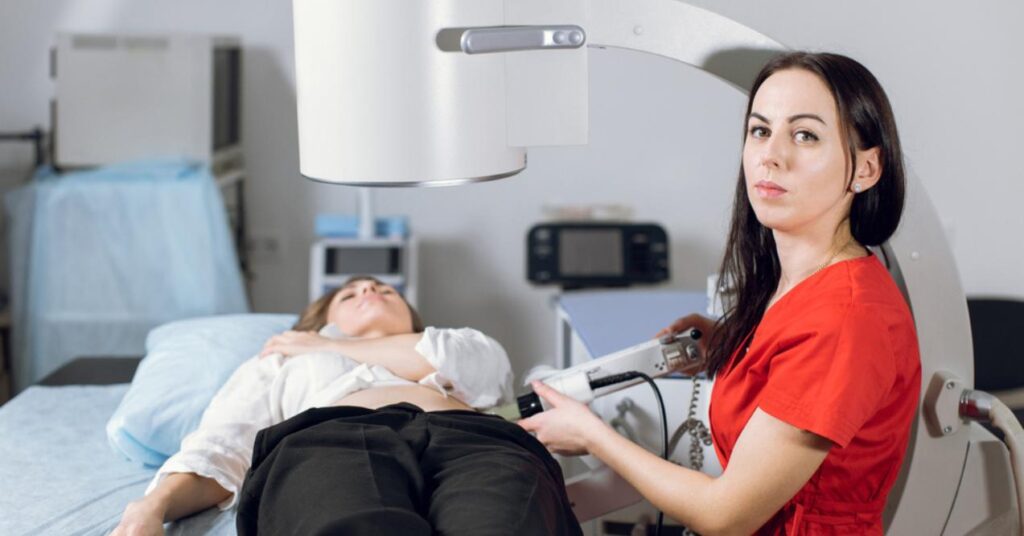
For severe cases, doctors may prescribe medications to decrease stone-forming substances or suggest procedures like extracorporeal shock wave lithotripsy (ESWL) or surgery, depending on the stone’s size and location.
3. Dietary Adjustments
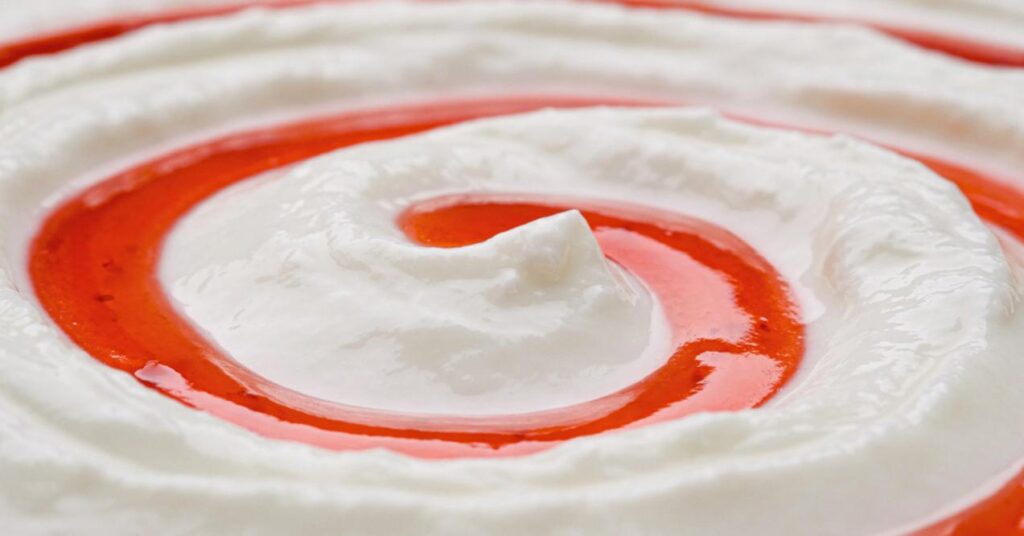
You may want to consider adjusting your diet by consuming fewer oxalate-rich foods such as beets, chocolate, and nuts. Pairing high-oxalate foods with high-calcium rich foods that bind with oxalate, including sardines, dairy, yogurt, kefir, cheese, and almonds or high-magnesium rich foods like avocados, legumes, seeds, and whole grains can reduce oxalate accumulation. Additionally, these foods are recommended if you are considering trying 7-day meal plan for kidney disease. Reducing sodium intake can also prevent excessive calcium from being expelled in your urine, discouraging stone formation.
4. Incorporate Physical Activity

Regular exercise not only boosts overall health but also helps prevent the recurrence of kidney stones by maintaining proper body weight and regulating urine substances.
5. Alternative Therapies
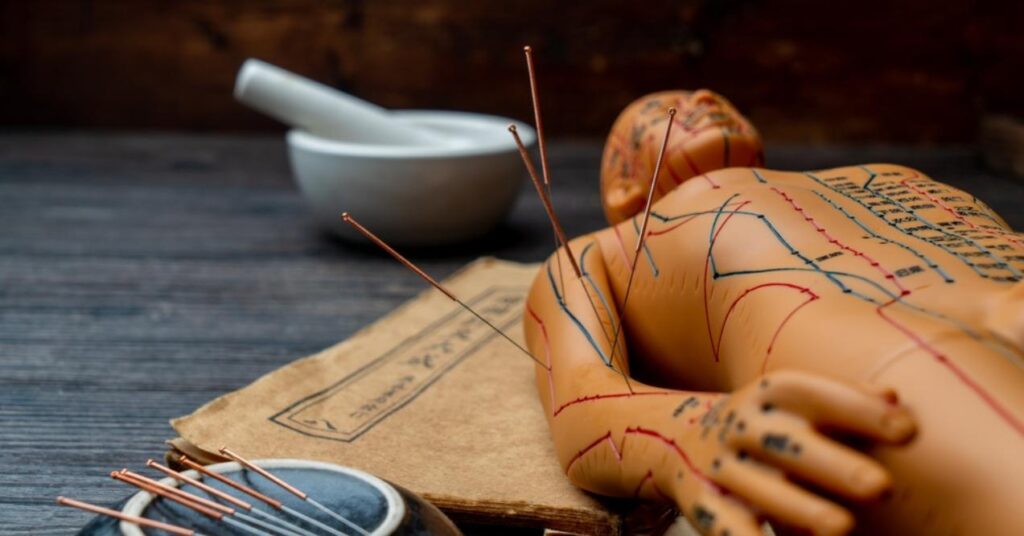
Consider alternative approaches like acupuncture or herbal remedies, though these should be pursued with your doctor’s advice to ensure they are safe and suitable for your situation.
6. Follow-Up Care

Maintaining regular check-ups with your healthcare provider is essential to monitor the kidney stones’ status and adjust the treatment plan as needed. Regular imaging tests and urine analysis can track progress and identify potential recurrences.
Home Remedies for Managing Gas and Bloating
If you’re grappling with gas and bloating, particularly when coupled with kidney stones, integrating some straightforward home remedies can be transformative. Whether it’s tweaking your diet, experimenting with herbal remedies, or boosting your hydration levels, let’s delve into these practical strategies that serve as the best detox for a bloated stomach and gas management.
1. Avoiding Gas-Producing Foods
Certain foods that produce gas can increase discomfort for people dealing with kidney stones. Minimizing the intake of such foods can contribute to overall digestive well-being. Limit consumption of beans, cabbage, and carbonated beverages.
2. Herbs
Supplemental measures, including some herbal remedies, can help reduce gas and bloating, complementing kidney stone management efforts. Consider the best teas for gut health known for their digestive benefits. Explore the various herbs with potential anti-inflammatory properties to ease gastrointestinal discomfort.
3. Drink Water
Hydration is your kidney’s best friend, so aim for eight glasses of water a day. You can include citrus fruits or cucumber slices in your water for added flavor and potential kidney stone prevention benefits.
4. Gas Relief Medication
Over-the-counter gas medicine can be used to help lessen the bloat while handling the issue of kidney stones. Always consult with your healthcare expert or pharmacist before medications are put into use, especially to ensure those will all work when carrying out a treatment. Find non-prescription drugs with simethicone that are especially used in breaking the gas bubbles.
Include these home remedies in your schedule to keep your gas and bloating under control in the event of kidney stones. Additionally, for a more comprehensive approach to digestive health, explore the best detox for a bloated stomach.
Remember, these remedies are intended to complement your overall kidney stone management plan. If the symptoms won’t stop, reach out to your healthcare provider for some personalized advice.
Tackling the Main Cause
Addressing the root cause — the health of our kidneys — is crucial to alleviating symptoms like gas and bloating associated with kidney stones. The kidney is involved in doing more than clearing metabolites and waste from our blood. It performs quite a number of activities geared to the quality of our lives. Those include:
- Filtration Powerhouse – The kidneys are vital organs that filter waste and excess fluids from the body, crucial for maintaining internal balance. They work tirelessly to ensure our system is clean and balanced.
- Electrolyte Balance – Kidneys regulate the body’s electrolytes, essential for the smooth functioning of all bodily systems. They play a critical role in maintaining our health and vitality.
- Heart Health – Healthy kidneys are key players in managing circulatory pressure, essential for cardiovascular health and the integrity of this transport system.
Let’s take a closer look at the kidney stones prevention strategies that will help to seize the above benefits:
- Early Detection – Regular medical check-ups and prompt attention to kidney stone symptoms are crucial. Early detection and management can significantly improve outcomes.
- Hydration and Dietary Modifications – Maintaining strong hydration and making dietary adjustments are key strategies to prevent new kidney stones from forming.
- Lifestyle Changes – Adopting a healthy lifestyle, including regular exercise and a balanced diet, acts as a preventive measure against the recurrence of kidney stones.
- Supplementation – Adding specific supplements for kidney health can help reduce the formation of kidney stones by supporting healthy mineral balance and kidney function, acting as a preventive measure.
Empower Your Kidneys With the Right Support

Key Benefits:
- Contains natural ingredients.
- Created to provide maximum support to your urinary tract health, the formulas reduces the risk of developing kidney stones while promoting its overall functioning.
- Engineered to support healthy kidney markers, filtration integrity, replenish nutrient imbalances, and cellular defense and reduce pro-inflammatory overactivity.
- This breakthrough formulas now goes all-out, not only supporting holistic care to support circulating sugar.
Remember, addressing the main cause transcends into alleviating symptoms; it involves nurturing the very core of your health. Empower your kidneys with the right support, guiding your choices towards a healthier, more comfortable you. Take the initial step on the path to enhanced kidney health and experience the transformative benefits of the kidney health supplements today. Your kidneys will undoubtedly thank you for it.
Potential Complications From Untreated Kidney Stones
Don’t ignore kidney stones. They can become serious health bullies if you don’t give them the attention they deserve. Ignoring these tiny crystals could unleash a domino effect of complications, and trust me, it’s more than just discomfort. Let’s examine the possible risks associated with untreated kidney stones.
- Persistent Pain and Discomfort – Leaving kidney stones untreated can stretch that nagging pain in your lower back or side. The longer you let them stay, the more they intensify the discomfort.
- Urinary Tract Bacterial Invasions – Kidney stones blocking the urinary highway turn urine into a stagnant pool. Guess who loves a stagnant pool? Bacteria. This cozy kidney stone environment is a hideout for urinary tract distress, which can increase symptoms and bring along other more serious complications if you let them go wild.
- Kidney Disease – Recurring kidney stones may lead to kidney disease. The first stages of kidney disease are silent eventually leading to irreversible kidney damage. Left untreated, it can cause swelling in your arms and legs and cardiovascular and lung problems that require more intensive interventions.
- Kidney Damage and Scarring – Imagine kidney stones as unwanted graffiti artists on your kidneys, leaving behind a canvas of damage and scars. Over time, this artwork can mess with your kidney function and raise the risk of complications.
Conclusion
In conclusion, kidney stones can indeed cause gas and bloating by disrupting the urinary and digestive systems. The obstruction of urine flow due to stones can lead to increased pressure and inflammation, affecting nearby organs and causing gastrointestinal discomfort. Managing kidney stones through hydration, dietary adjustments, exercise, and medical interventions is essential for alleviating these symptoms and preventing further complications. Addressing the root cause and maintaining overall kidney health can significantly improve your well-being.
Yes, kidney stones can lead to bloating. The disruption caused by these stones in the urinary system may extend to the gastrointestinal tract, causing discomfort.
Yes, kidney stones can cause gas. The intricate connections within our body mean that disruptions in the urinary system can manifest as gastrointestinal symptoms, including gas.
Gas pain is often felt in the abdomen. It can vary in intensity and may be experienced in different areas, typically in the lower abdomen or around the chest and shoulders.
Sign up for our Healthy Living newsletter!
Advertisement. This site offers health, wellness, fitness and nutritional information and is designed for educational purposes only. You should not rely on this information as a substitute for, nor does it replace, professional medical advice, diagnosis, or treatment. If you have any concerns or questions about your health, you should always consult with a physician or other health-care professional. Do not disregard, avoid or delay obtaining medical or health related advice from your health-care professional because of something you may have read on this site. The use of any information provided on this site is solely at your own risk.



